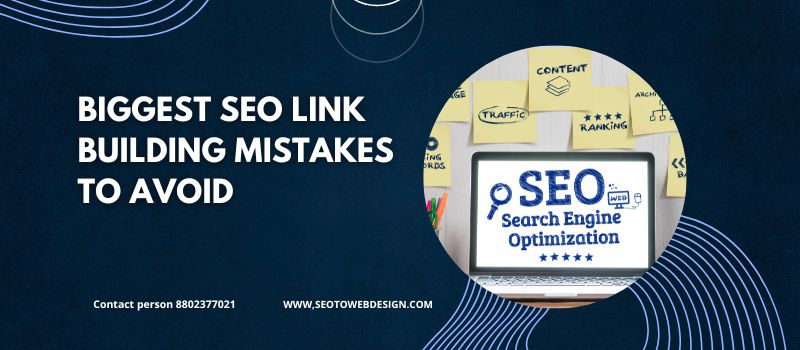1. Focusing On Quantity Over Quality
A frequent link-building error is emphasizing the number of backlinks instead of focusing on their quality. Many website owners believe that the more backlinks they have, the better their rankings will be. However, search engines like Google value high-quality, relevant backlinks over a large number of low-quality links. Links from authoritative and reputable websites in your niche carry more weight than links from irrelevant or low-domain authority sites. Building too many low-quality links can lead to penalties rather than benefits.
How To Avoid This Mistake
Focus on acquiring backlinks from authoritative sources that are relevant to your industry. A handful of high-quality links will outperform hundreds of poor-quality ones.
2. Ignoring The Relevance Of Linking Sites
Another critical mistake is neglecting the relevance of the websites that link back to you. Search engines assess the relationship between the linking site and your website. Links from websites that are not related to your niche or industry may not carry the SEO value you hope for and can even look suspicious to search engines.
How to Avoid This Mistake
Always aim to get links from sites that are relevant to your content or industry. This helps establish your website as an authority in your field and improves the overall quality of your backlink profile.
3. Using Black Hat SEO Techniques
Black hat SEO practices, such as purchasing links or using private blog networks (PBNs), are outdated and dangerous. Search engines like Google have become increasingly adept at identifying these tactics, and using them can result in severe penalties, including being de-indexed from search results.
How To Avoid This Mistake
Avoid any tactics that manipulate search engine algorithms. Stick to white hat SEO strategies, which involve earning links naturally through high-quality content, outreach, and partnerships.
4. Over-Optimizing Anchor Text
Anchor text—the visible, clickable text in a hyperlink—is another critical element in link building. Over-optimizing anchor text with too many exact-match keywords is a mistake that can lead to penalties. Search engines view this as manipulative and unnatural.
How To Avoid This Mistake
Use a natural mix of anchor texts, including branded terms, generic terms (like “click here”), and variations of your target keywords. The key is to make your anchor text appear organic rather than forced.
5. Neglecting Internal Link Building
While external backlinks from other websites are crucial, many website owners overlook the importance of internal link building. Internal links help distribute link equity throughout your site and improve navigation for users and search engines.
How To Avoid This Mistake
Implement a strong internal linking strategy by linking to relevant pages within your own site. This not only helps with SEO but also enhances the user experience by guiding visitors to useful content.
6. Failing To Diversify Your Link Profile
Having a diverse link profile is essential to avoid looking manipulative to search engines. If all your backlinks come from a single type of website, it can raise red flags. A diverse link profile includes links from different types of domains, such as blogs, news sites, forums, and social media platforms.
How To Avoid This Mistake
Diversify your backlinks by earning them from various sources. Guest blogging, influencer outreach, and media mentions are great ways to create a well-rounded link profile.
7. Ignoring Broken Links
Broken links are links that no longer lead to an active web page, and they are a missed opportunity in SEO. Both internal and external broken links can hurt your SEO performance and user experience.
How To Avoid This Mistake
Regularly audit your website for broken links using tools like Google Search Console or third-party SEO software. Fix or replace broken links as soon as they are identified.
8. Not Monitoring Your Backlink Profile
Once you’ve built a robust link profile, it’s easy to become complacent. However, regularly monitoring your backlinks is crucial to ensure they remain beneficial. Links can be removed, or low-quality sites may start linking to you, negatively affecting your rankings.
How To Avoid This Mistake
Regularly track your backlink profile with tools such as Ahrefs or SEMrush for effective monitoring and analysis. Disavow any harmful or low-quality links and ensure you are consistently gaining high-quality backlinks.

